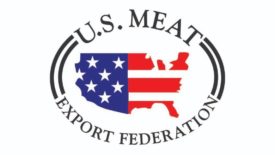Home » Keywords: » corn
Items Tagged with 'corn'
ARTICLES
USMEF chair says corn and soybean quality as feed inputs is a key differentiator for US red meat in international markets.
Read More
USDA forecasts U.S. corn production up, soybean production down from 2022
Corn production is up 10% from last year, forecast at 15.1 billion bushels.
Read More
USDA forecasts U.S. corn up and soybean production down from 2022
Corn production is up 10% from last year.
Read More
Business Strategies | 2020 Crop Report
2020 Crop Report: Buyer’s market, despite uncertainty
Read MoreStay ahead of the curve. Unlock a dose of cutting-edge insights.
Receive our premium content directly to your inbox.
SIGN-UP TODAYCopyright ©2024. All Rights Reserved BNP Media.
Design, CMS, Hosting & Web Development :: ePublishing


.png?height=168&t=1666223298&width=275)





